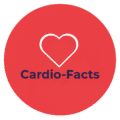Introduction
Heart health myths are everywhere, and believing them can put your life at risk. Heart disease is still the leading cause of death worldwide, yet misinformation about prevention, symptoms, and treatment continues to spread. Many people underestimate their cardiovascular risk because they rely on outdated or misleading advice. From the idea that only men get heart attacks to the belief that chest pain is the only warning sign, these myths can delay diagnosis and prevent effective prevention.
By exposing the truth behind the most common heart health myths, this article will help you separate fact from fiction. With evidence-based insights, you will learn what really protects your heart, what risk factors to watch out for, and how simple lifestyle changes can make a lasting difference.
Myth 1: Only men get heart attacks
Fact: Cardiovascular disease is the leading cause of death in women as well as men. Women often present with atypical symptoms such as fatigue, nausea, or shortness of breath, which makes early recognition crucial.
Myth 2: If you feel fine, your heart is fine
Fact: Conditions like high blood pressure and high cholesterol are called “silent killers” because they rarely cause symptoms until advanced stages. Regular check-ups are essential even when you feel healthy.
Myth 3: Heart disease only affects the elderly
Fact: Arterial plaque buildup can start as early as the teenage years. Obesity, smoking, diabetes, and poor diet accelerate cardiovascular risk in younger adults.
Myth 4: Chest pain is the only sign of a heart attack
Fact: While chest pain is common, symptoms can also include arm pain, jaw discomfort, dizziness, cold sweats, or shortness of breath. Women, in particular, often present with these atypical signs.
Myth 5: Exercise must be intense to protect the heart
Fact: Moderate activity such as brisk walking for 30 minutes a day reduces blood pressure, improves cholesterol, and lowers cardiovascular risk. Consistency matters more than intensity.
Myth 6: Heart disease runs only in families
Fact: While genetics play a role, lifestyle factors such as smoking, poor diet, and lack of exercise account for the majority of cardiovascular risk. Prevention is possible regardless of family history.
Myth 7: Taking medication is enough to control heart disease
Fact: Medications for blood pressure or cholesterol are effective, but their impact is maximized when combined with lifestyle changes like a heart-healthy diet and physical activity.
Myth 8: Low-fat diets are the best for heart health
Fact: The quality of fat matters more than the quantity. Unsaturated fats (olive oil, nuts, fish) are cardioprotective, while trans fats and excessive saturated fats increase risk.
Myth 9: A glass of red wine a day is always good for the heart
Fact: While some studies suggest mild cardiovascular benefits from moderate alcohol, excessive intake increases blood pressure, arrhythmias, and stroke risk. Non-drinkers should not start drinking for “heart health.”
Myth 10: Heart disease is inevitable with age
Fact: Aging increases risk, but prevention works at every stage of life. Evidence shows that smoking cessation, exercise, balanced diet, and blood pressure control reduce events even in older adults.
Conclusion
Misinformation about cardiovascular health can be dangerous. By understanding and challenging these myths, you empower yourself to take control of your heart health. Prevention, early detection, and lifestyle changes remain the strongest tools to protect your heart.
References
- Heart Disease and Stroke Statistics — 2024 Update. American Heart Association. Circulation. 2024
- 2021 ESC Guidelines on Cardiovascular Disease Prevention in Clinical Practice. European Heart Journal
- Cardiovascular diseases (CVDs). WHO Fact Sheet, 2025
- ESC Patient Information – Cardiovascular Disease Prevention Guidelines
⚠️ Disclaimer: The content on Cardio-Facts is for informational and educational purposes only and does not constitute medical advice. Always consult a qualified healthcare professional regarding your health. Read our full disclaimer and legal policies.
